Aifa’i Esera – BOP Pacific Business Navigator
We are honored to introduce Aifa’i Esera, a dedicated community leader and advocate for Pasifika empowerment. Aifa’i’s story is one of resilience, faith, and unwavering commitment to his heritage and community.
Aifa’i hails from the villages of Tuana’i, Solosolo and Sapunaoa, carrying the legacy of his great-grandfather, a revered chief known for his bravery and service. This deep connection to his roots has shaped Aifai’s vision and mission in life. Despite facing numerous challenges, including the loss of his younger brother and the struggles of adapting to a new country, Aifa’i has remained steadfast in his purpose.
His career journey is a testament to his adaptability and determination. From selling newspapers as a child in Samoa to working for the Tauranga City Council for 12 years, Aifa’i has always sought ways to uplift his community. His current role involves supporting Pacific business owners, bridging gaps between councils, businesses, and the community, and ensuring that the aspirations of his ancestors are realized.
Aifa’i’s defining moment came when he discovered the teachings of Dr. Myles Munroe, which realigned his understanding of his purpose and strengthened his faith. This newfound clarity has driven him to create opportunities for others, whether through “Ready to Rent” workshops or his efforts to become a Community Housing provider.
Despite the setbacks and challenges, he has faced, Aifa’i’s resilience shines through. His recent nomination for the New Zealander of the Year Local Hero award is a testament to his impact and dedication. Aifa’i’s story is not just about personal & whānau success but about creating a legacy that inspires others to build their own kingdoms and spaces.
Join us as we explore the journey of Aifai Esera, a true embodiment of leadership, community spirit, and the power of vision.
“I became successful at selling newspapers because I observed people. I noticed that those who wore sandals, not jandals, were the ones who bought the most papers. These sandal-wearing people were government workers, police officers, and business owners. So, I focused on selling to them. I wondered how I could become someone who wore sandals”
The six pou of Mata Ārahi Manomano drive the questions we have used to profile Māori & Pacific role models, in the Service sector.
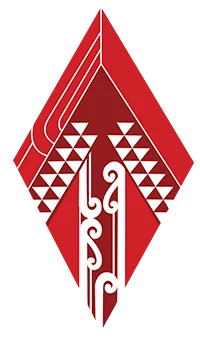
|
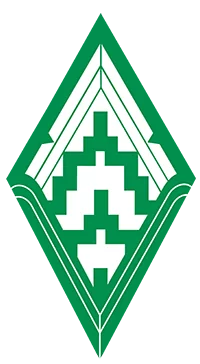
|
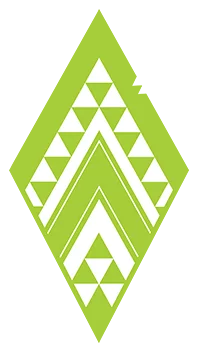
|
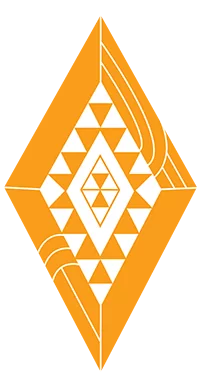
|
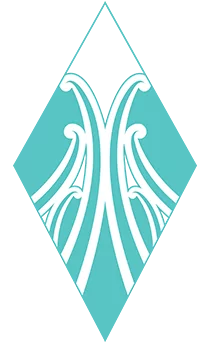
|
|

Representing the levels and forms of aroha that can be found throughout our lives across our many communities. We acknowledge the wide range of obstacles and the journey it takes to overcoming everything that stands in our way to expressing aroha within.
Fainu’ulelei Aifa’i Esera. I hail from the villages of Tuana’i, Solosolo. My chief title comes from the village of Solosolo. My great-grandfather, Aifa’i, was a chief and the originator of the Fainu’uulelei name. There was a stranded canoe beyond the reefs and no one dared to retrieve. A village meet was called and my great-grandfather volunteered to retrieve the canoe. On his return, Fainu’ulelei was bestowed upon him. It is an honour to carry on this legacy, which means “Serving your village with all your might.” Although he is from Solosolo, I grew up in Tuana’i.
When I was young, my mother had to leave for work for months at a time, leaving me to care for my younger brother from the age of 6 or 7. His name was Okesene, which means Oxygen. I left Samoa for New Zealand at 12, and I later learned he had passed away. His name reminds me to make the most of my life and not waste the breath I have.
My weakness is not always considering the risks and consequences of my actions. I tend to focus on immediate needs without fully understanding the ramifications.
My faith is strong, even though I don’t attend church regularly. I believe in living faithfully and fulfilling the purpose Jesus has for me. To me, the Kingdom of God is wherever you are, and you need to dominate that space.
An example of where things went wrong for me is when I tried to start a Pasifika ECE in the Bay of Plenty. Everything seemed fine, so I signed a lease on a property without a signed contract. This cost me a large sum of money to get out of the lease, and I had to remortgage our house. It was a valuable lesson. My faith helped me through this challenging time.
I often reflect on whether I am doing things for my own glory or for a greater purpose. If it’s for personal glory, it won’t last. I strive to ensure that my actions are meaningful and inspire others to create their own space and kingdom.
I am just paddling my own waka (canoe), whether I am at the front, back, or directing it. What matters is that we are all on the canoe together, moving forward.

Seeking guidance from our kaitiaki Hiwa-i-te-rangi, we take a journey through our different aspirations, goals and dreams. This tohu acknowledges hard work, wisdom, the reach of ones goals and the desire that comes from this mahi.
I came to New Zealand as a 12-year-old, settling in Christchurch. I am a Cantabrian through and through. I’ve been living in Tauranga for nearly 20 years.
Growing up, I never had specific career aspirations. At seven years old, I was raising my younger brother and selling newspapers in Apia.
I became successful at selling newspapers because I observed people. I noticed that those who wore sandals, not jandals, bought the most papers. These sandal-wearing people were government workers, police officers, and business owners. I focused on selling to them. I wondered how I could become someone who wore sandals.
For 12 years, I worked for Tauranga City Council. Now, I support Pacific business owners to ensure they thrive. I bridge the gap between council and businesses because our young people still need support.
I assist our people in entering the workforce and utilize the businesses I have access to. The closing of this triangle is housing. We are in the process of becoming a Community Housing provider.
For me, everything goes in threes: the Father, the Son, and the Holy Spirit. This trinity includes the workforce, businesses, and housing. It’s not about aspiring to a specific role but about inspiring myself to support others.

With adventure comes challenges as well as obstacles to overcome. We stand proud as we overcome these obstacles. This tohu draws inspiration from the Niho Taniwha and Aramoana patterns. We acknowledge reaching our destination and preparing ourselves for the many new adventures ahead.
I’m having fun, and I’m going to keep having fun. For me, the journey is just the journey. This ties back to my faith; I believe there’s a reason we’re on this earth. We each have our own kingdom, our own space, and we need to dominate that space. When you do, people will come to you because they need support.
I constantly self-reflect to ensure that what I’m doing is not for my own glory. People might look at what I do and think it’s cool, but I don’t see it that way. They don’t know that if I had stayed in Samoa, my brother might still be alive.
For me, this is bigger than myself. I’m just here in this space for now, and hopefully, I’ll create a different space for someone else. What I do can’t be replicated, and what you do can’t be replicated. It’s the space you’re in that inspires others to create their own space.
My career adventure is like paddling my own waka. Whether I’m at the front, the back, or directing the canoe, it doesn’t matter. What matters is that we’re all on the canoe together, moving forward.

These patterns represent bravery and being strong in the face of adversity. We strive to be persistent and positively challenge anything that threatens to alter, restrict, and put a barrier in the way of our desired pathway.
About 10 years ago, I had aspirations of starting a Pasifika Early Childhood Education (ECE) center. This dream is still alive, but it will take some time to build the foundation because it won’t be immediately profitable. I need to find ways to generate income to support this goal.
A defining moment was when I started following a preacher from the Bahamas named Dr. Myles Munroe. For the past 10 years, I have listened to his teachings, which have realigned my understanding of myself and my purpose. His teachings on kingdom living have helped me serve God the best way I can.
Once you know your true passion and leadership, everything else becomes noise and distraction. For me, it’s about continuing on my path with the right attitude. I know I’m on the right path because opportunities keep coming my way. It’s important to discern which opportunities are good, but all opportunities are valuable.
I was never the brightest kid in school and often played the class clown. This was my way of coping with academic challenges. I knew I couldn’t pass the tests, but I understood the material. My personal attitude and purpose now drive me.

Here we are drawing inspiration from the Pūhoro pattern. The pūhoro is used here to represent the strength, speed and agility needed to move forward and accomplish ones goals.
For any business to thrive, you need a business plan. You need a vision and a mission. Without these, there’s no direction. Instead of relying on your eyesight, close your eyes and see yourself achieving your goals.
Our ancestors left the islands for two main reasons: to support their families back home and to ensure their children received an education.
Today, the cost of living is so high that we struggle to send money back home and our children are not attending school regularly. This means they are not getting an education and are not working. My vision is to make sure we realize the aspirations of our ancestors. Once these aspirations are deeply rooted in us, our focus shifts to achieving this goal.
My mission is to be the connector, the go-to person, so these aspirations can be fulfilled. Imagine a job where you earn and learn at the same time. This automatically fulfils the aspirations of our ancestors through education and financial stability.
Pacific ancestors have different challenges to navigate compared to Māori ancestors. But as long as we create a supportive environment at home, our kids will understand their heritage and have their own vision for the future while honoring what we’ve created for them.
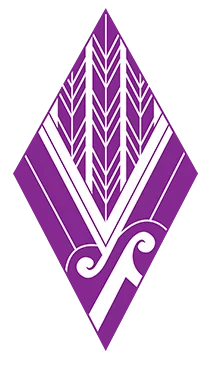
Success, best mentioned in the whakatauki “Tūwhitia te hopo, mairangatia te angitū!” Feel the fear and do it anyway!
You can help many people do many things, but when you’re down in the dumps, it’s who’s around you that lifts you up. I’m thankful every day for my wife and kids.
My role allows me to meet important people, but when I go home, I’m always grounded, and my wife calls me out on my nonsense. For failures, be surrounded by people who are important to you.
I run “Ready to Rent” workshops, teaching people how to look after their homes and be seen at open homes for rentals. I bring in experts like property managers and banks to run these workshops. I also run “Ready to Buy” workshops. I’m just teaching people what I know and what I’ve done.
For me, it’s gone from selling newspapers to selling a dream. For those who finally found a rental property after coming from emergency housing, it’s a big win.
As for memorable wins, last year I received a New Zealander of the Year Local Hero nomination medal. It’s a beautiful surprise to be acknowledged for what you do at a national level. It’s things like this that keep me going.